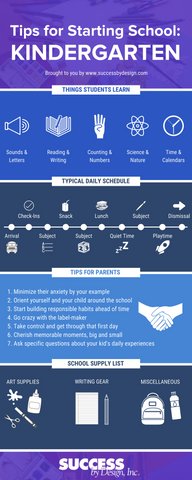Kindergarten teaches crucial skills for young learners. From social interaction to foundational academic knowledge, what does kindergarten teach shapes the future success of children. In these formative years, kindergarteners discover the joy of learning through play, exploration, and structured activities. This early educational experience lays the groundwork for essential abilities such as reading, math, and problem-solving. Kindergarten also fosters emotional development, creativity, and independence, preparing children for the exciting journey ahead in their academic pursuits.
The Wonders of Kindergarten: What Does Kindergarten Teach
Introduction
Welcome to the magical world of kindergarten! Kindergarten is an exciting time when children embark on their educational journey, filled with new experiences and discoveries. But have you ever wondered what exactly kindergarten teaches? In this article, we will dive deep into the wonderful world of kindergarten and explore the valuable lessons and skills that children learn during this crucial stage of their development.
What is Kindergarten?
Kindergarten is a special grade designed for young children, typically aged 5 to 6 years old, as a precursor to formal education. It serves as a bridge between home and school, where children learn essential skills in a nurturing and playful environment. Kindergarten lays the foundation for a child’s future academic success and personal growth.
Social Skills and Emotional Development
One of the primary focuses of kindergarten is on developing social skills and emotional intelligence. Children learn how to interact with their peers, share, take turns, and express themselves effectively. Through group activities and play, kindergartners learn valuable lessons in cooperation, empathy, and self-regulation.
Language and Communication
Kindergarten is a crucial time for language development. Children are exposed to a rich language environment where they learn to express themselves verbally, listen actively, and begin reading and writing. Through storytelling, songs, and conversations, kindergartners strengthen their communication skills and build a strong foundation for literacy.
Math and Problem Solving
Mathematics is an essential part of the kindergarten curriculum. Children engage in fun and hands-on activities that introduce them to numbers, shapes, patterns, and basic arithmetic concepts. Kindergartners learn to solve simple problems, think critically, and develop their logical reasoning skills through engaging math games and puzzles.
Science and Exploration
Kindergarten sparks children’s curiosity and love for learning through hands-on science experiments and exploration activities. From observing nature to conducting simple experiments, kindergartners develop a basic understanding of scientific concepts and learn to ask questions, make predictions, and explore the world around them.
Art and Creativity
Artistic expression is a vital component of kindergarten education. Children engage in various art activities such as drawing, painting, sculpting, and crafting, allowing them to unleash their creativity and imagination. Kindergartners learn to express themselves through art, develop fine motor skills, and appreciate the beauty of self-expression.
Physical Development and Motor Skills
Kindergarten provides opportunities for children to engage in physical activities that promote gross and fine motor skills development. Through games, playtime, and outdoor activities, kindergartners enhance their coordination, balance, and spatial awareness. Physical education in kindergarten fosters a healthy and active lifestyle from a young age.
Critical Thinking and Problem Solving
Kindergarten cultivates children’s critical thinking skills and problem-solving abilities through puzzles, challenges, and interactive activities. Kindergartners learn to think creatively, make informed decisions, and approach problems with a growth mindset. Critical thinking skills acquired in kindergarten prepare children for future academic challenges and real-world scenarios.
Kindergarten is a transformative and enriching experience that equips children with a diverse set of skills and knowledge essential for their future success. From social skills and emotional development to academic readiness and creative expression, kindergarten lays a solid foundation for lifelong learning and growth. So, the next time you wonder what kindergarten teaches, remember that it teaches much more than just ABCs and 123s – it nurtures young minds, fosters curiosity, and shapes the leaders of tomorrow.
Easy Kindergarten Reading Lesson
Frequently Asked Questions
What subjects are taught in kindergarten?
In kindergarten, children are typically taught basic subjects such as literacy (reading and writing), numeracy (basic math skills), science, social studies, and sometimes art and music. These subjects help children develop a strong foundation for learning as they progress to higher grades.
How does kindergarten help develop social skills?
Kindergarten plays a crucial role in developing children’s social skills by providing opportunities for interaction with peers and teachers. Through activities like group work, playtime, and classroom discussions, children learn to communicate, cooperate, share, and resolve conflicts effectively. These interactions help children build important social skills that are essential for their overall development.
What role does kindergarten play in fostering creativity?
Kindergarten encourages creativity by incorporating activities like art, music, and imaginative play into the curriculum. These activities help children explore their creativity, think outside the box, and express themselves in different ways. By engaging in creative tasks, children develop their problem-solving skills, critical thinking abilities, and overall creativity.
Final Thoughts
In conclusion, Kindergarten teaches foundational skills vital for a child’s development. It fosters social interaction, problem-solving, and creativity. Through play-based learning, children build cooperation and communication skills. Overall, kindergarten provides a crucial educational foundation for young learners, setting the stage for future academic success.
 home depot coupons moving helping customers save on essential home supplies
home depot coupons moving helping customers save on essential home supplies 
